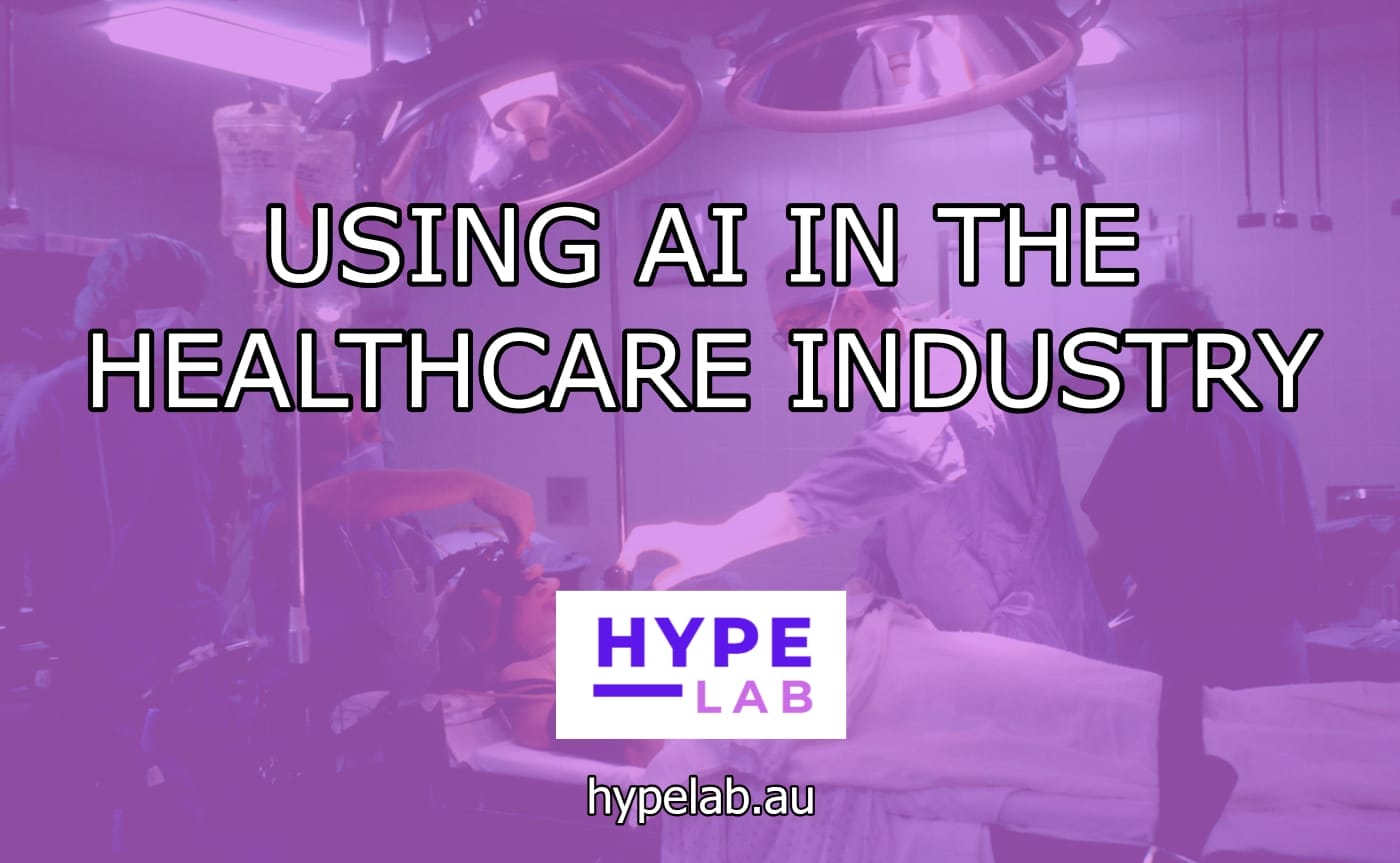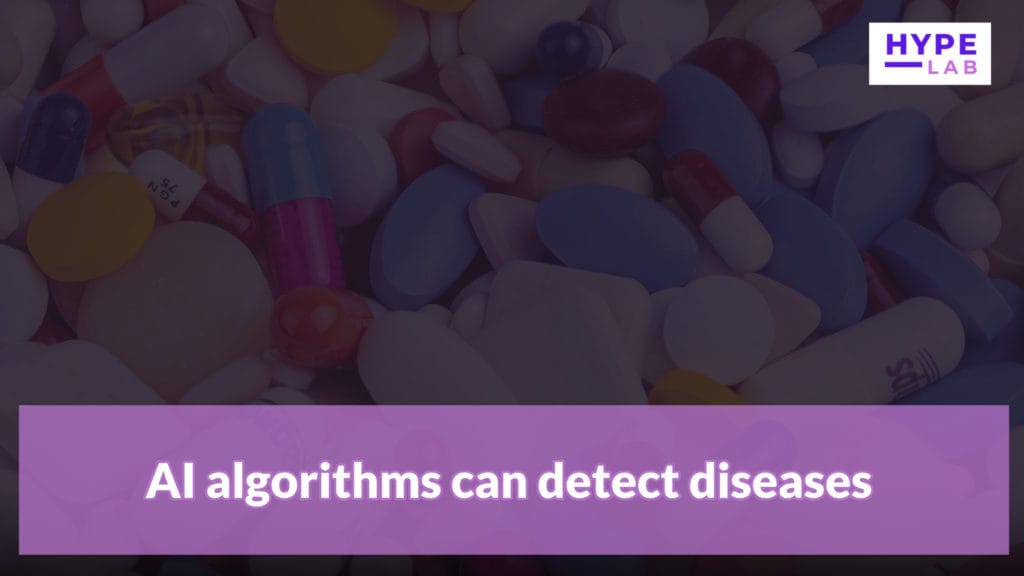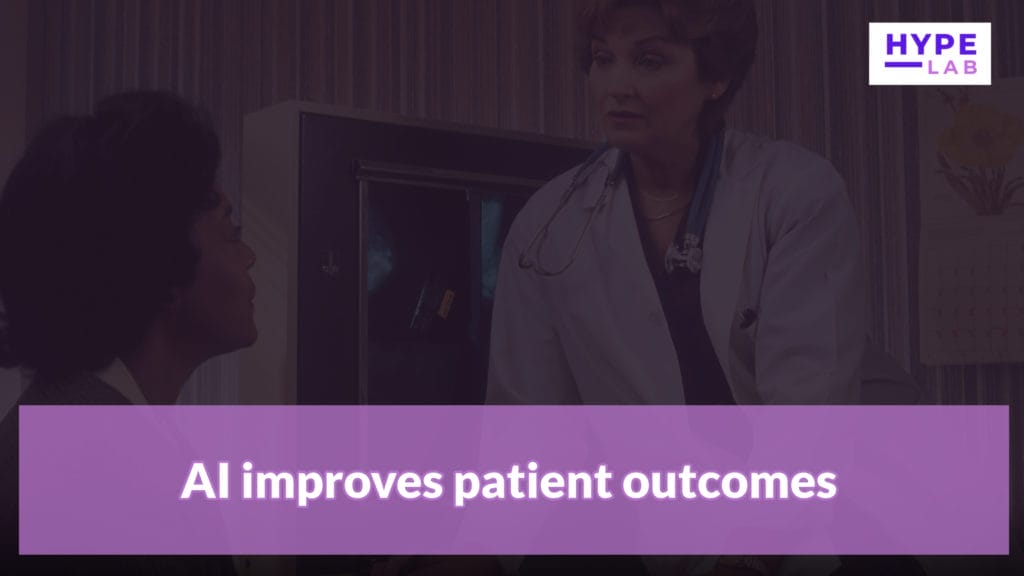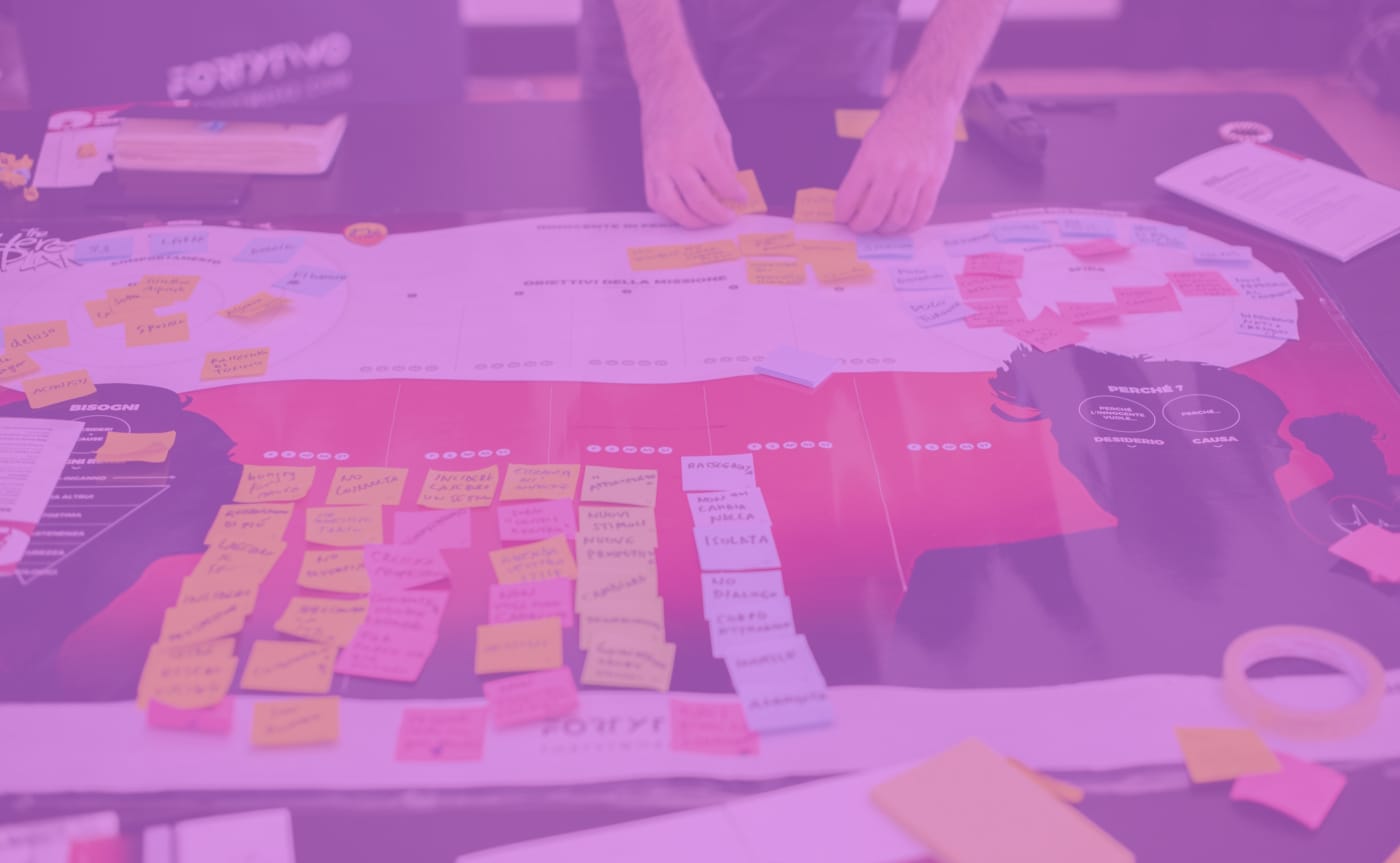
Artificial intelligence (AI) is rapidly changing the healthcare industry, revolutionising how we approach patient care, medical research, and administrative tasks. With the growing amount of data in the healthcare sector, AI has the potential to improve the overall efficiency and effectiveness of healthcare services.
One of the most significant benefits of AI in healthcare is its ability to streamline processes and make more accurate diagnoses. Machine learning algorithms can analyse patient data and medical images to identify patterns and provide insights that would be difficult or impossible for humans to detect. This can help healthcare providers make more informed decisions about patient care and treatment options.
Another area where AI is making a big impact is medical research. Researchers can use AI to analyse large datasets and identify potential new treatments or drugs. By automating time-consuming tasks like data collection and analysis, AI can speed up the research process and lead to faster development of new treatments.
Despite the many benefits of AI in healthcare, there are also some challenges and ethical considerations that need to be addressed. For example, there is the risk that AI could be used to make decisions that are biased or unfair, or that could have negative impacts on patients’ health. It is important that healthcare providers and researchers use AI responsibly and ensure that it is used to benefit both patients and healthcare professionals.
AI is transforming the healthcare industry in many ways, from improving patient care to speeding up medical research. As the technology continues to advance, it will be important to address the challenges and ethical considerations that come with implementing AI in healthcare. With responsible use, AI has the potential to make a significant positive impact on the industry as a whole.
AI streamlines patient data management
With the rapid advancements in technology, the healthcare industry has found a valuable ally in artificial intelligence (AI). One area where AI has proven to be particularly effective is in streamlining patient data management. Traditional methods of managing patient records and information can be time-consuming and prone to errors. However, AI-powered systems can efficiently process and analyse large volumes of data, such as medical records, lab results, and imaging reports, with great accuracy and speed. By automating tasks that would typically require manual intervention, AI enables healthcare professionals to focus more on patient care and treatment. This not only enhances efficiency within hospitals and clinics but also improves the overall patient experience by reducing waiting times and ensuring accurate and timely diagnoses. The integration of AI in healthcare continues to revolutionise patient data management, paving the way for more effective and personalised healthcare solutions.
Healthcare professionals can monitor patients remotely
One transformative application of AI in the healthcare industry is the ability for healthcare professionals to remotely monitor patients. Through the use of advanced technologies, such as wearable devices and remote monitoring systems, medical professionals can now keep a close eye on their patients’ health without the need for constant physical visits to the hospital or clinic. These AI-powered systems can collect and analyse real-time data on vital signs, medication adherence, and other relevant health metrics. By remotely monitoring patients, healthcare professionals can proactively detect any changes or abnormalities in their condition, allowing for early intervention and personalised treatment plans. This not only improves the efficiency of healthcare delivery but also enables patients to receive continuous care and support from the comfort of their own homes. With AI, the healthcare industry is revolutionising patient monitoring and empowering both patients and healthcare professionals with greater convenience and control over their health journey.

AI algorithms can detect diseases
AI algorithms have emerged as powerful tools in the healthcare industry, enabling the detection of diseases with remarkable accuracy. By analysing vast amounts of medical data, including patient records, imaging scans, and laboratory results, AI algorithms can identify patterns and indicators that may be indicative of various diseases. This advanced technology has the potential to revolutionise diagnostics by assisting healthcare professionals in making more precise and timely diagnoses. With AI, hospitals and healthcare providers can harness the power of artificial intelligence to enhance disease detection, leading to earlier interventions, improved treatment outcomes, and ultimately, saving lives. The integration of AI algorithms in healthcare holds immense promise for improving patient care and advancing medical research.
Hospitals use AI for scheduling
Hospitals have also started utilising AI technologies to optimise and streamline their scheduling processes with staff rosters. By leveraging AI algorithms, healthcare facilities can efficiently manage appointment scheduling, operating room usage, and staff assignments. The intelligent scheduling systems consider factors such as patient availability, medical urgency, and resource allocation to ensure optimal utilisation of healthcare resources. AI can analyse historical data and predict patient demand, helping hospitals anticipate peak times and allocate staff accordingly. This not only maximises operational efficiency but also reduces patient wait times and improves overall patient satisfaction. The integration of AI in hospital scheduling systems is revolutionising healthcare management, enabling healthcare providers to deliver services more effectively and efficiently.
AI-powered drug discovery accelerates progress
AI-powered drug discovery has emerged as a revolutionary approach in the healthcare industry, greatly accelerating the progress of finding new and effective treatments. With the vast amount of scientific research and data available, it can be a daunting task for researchers to analyse and interpret all the information. However, by leveraging artificial intelligence, researchers can swiftly sift through massive datasets, identify patterns, and make predictions to guide their drug discovery efforts. AI algorithms can analyse molecular structures, genetic data, and patient information to identify potential targets for drug development, significantly reducing the time and cost traditionally associated with this process. This breakthrough technology has the potential to revolutionise the field of medicine, allowing for the development of personalised treatments and ultimately improving patient outcomes.
AI reduces medical errors significantly
The integration of AI in the healthcare industry has shown promising results in reducing medical errors and improving patient safety. By leveraging advanced algorithms and machine learning capabilities, AI systems can analyse vast amounts of patient data, identify potential risks, and provide healthcare providers with real-time insights and decision support. This technology enables hospitals and medical professionals to detect potential errors or adverse events early on, allowing for timely interventions and preventive measures. Furthermore, AI-powered diagnostic tools can assist in accurately interpreting medical images and test results, reducing the likelihood of misdiagnosis and ensuring prompt and appropriate treatment. With AI playing a crucial role in healthcare, hospitals and healthcare facilities can enhance patient care, minimise errors, and ultimately save lives.
AI chatbots provide 24/7 support
In addition to the numerous benefits that AI brings to the healthcare industry, it also plays a crucial role in providing 24/7 support through AI chatbots. These chatbots are programmed with advanced algorithms that enable them to understand and respond to patient queries and concerns effectively. With the ability to analyse vast amounts of medical information in real-time, AI chatbots can provide accurate and personalised responses, offering patients immediate assistance even outside of normal working hours. This not only enhances patient satisfaction but also reduces the workload on hospital staff, allowing them to focus on critical tasks while ensuring that patients receive timely and reliable support. By incorporating AI chatbots into healthcare systems, hospitals can provide round-the-clock access to information, support, and guidance, ensuring that patients feel cared for and attended to at all times. Even by using digital wayfinding, hospital are able to provide the support needed to get visitors around the hospital.
Healthcare personalisation through AI technology
Artificial intelligence (AI) technology is revolutionising the healthcare industry by enabling personalised care for patients. Through the analysis of vast amounts of data, AI algorithms can identify patterns and trends that aid in the accurate diagnosis and treatment of various medical conditions. By leveraging AI technology, healthcare providers can tailor treatment plans and interventions to individual patients, taking into account factors such as their medical history, genetics, lifestyle, and preferences. This level of personalisation ensures that patients receive the most effective and efficient care, leading to better outcomes and improved patient satisfaction. Furthermore, AI-powered predictive analytics can help identify high-risk patients and intervene proactively, preventing complications and reducing hospital readmissions. By harnessing the power of AI in healthcare, the industry is unlocking new possibilities for delivering personalised, patient-centric care.
AI assists in diagnosing illnesses
In the realm of healthcare, artificial intelligence (AI) is making significant strides in assisting with the diagnosis of illnesses. With the ability to process and analyse vast amounts of patient data, AI algorithms can quickly identify potential indicators of various medical conditions. This technology helps healthcare professionals make more accurate and timely diagnoses, ensuring that patients receive appropriate treatment plans. By leveraging AI in the hospital setting, doctors can access valuable insights and recommendations based on patterns and trends identified by the AI systems. This not only improves the efficiency of the diagnostic process but also enhances patient outcomes by reducing misdiagnoses and providing targeted care. The integration of AI in diagnosing illnesses is a promising development that holds great potential for revolutionising the healthcare industry and improving patient care.

AI improves patient outcomes
With the integration of AI in the healthcare industry, patient outcomes are being significantly improved. AI-powered systems can analyse patient data and medical records to identify potential risks and predict adverse events, allowing healthcare providers to intervene proactively. For example, AI algorithms can detect patterns in vital signs and patient behaviour to predict the likelihood of a patient developing complications or experiencing a sudden deterioration in their condition. By alerting healthcare providers to these risks, AI enables timely interventions, preventing avoidable hospital readmissions and reducing the overall burden on healthcare resources. Additionally, AI can assist in personalised treatment planning by considering individual patient characteristics, such as genetic predispositions and medication reactions, resulting in more tailored and effective treatment strategies. The utilisation of AI in healthcare is revolutionising patient care, promoting better outcomes, and ultimately enhancing the overall quality of healthcare delivery.
The use of AI in the healthcare industry has immense potential to revolutionise healthcare as we know it. From improving patient care and outcomes to streamlining administrative tasks, AI can bring a multitude of benefits to healthcare professionals and patients alike. As with any new technology, there are challenges and ethical considerations to be addressed, but with proper implementation and regulation, AI can greatly enhance the efficiency and effectiveness of healthcare. The future of healthcare is bright with AI, and it will be exciting to see how this technology continues to evolve and shape the industry for the better.


 Previous Post
Previous Post Next Post
Next Post